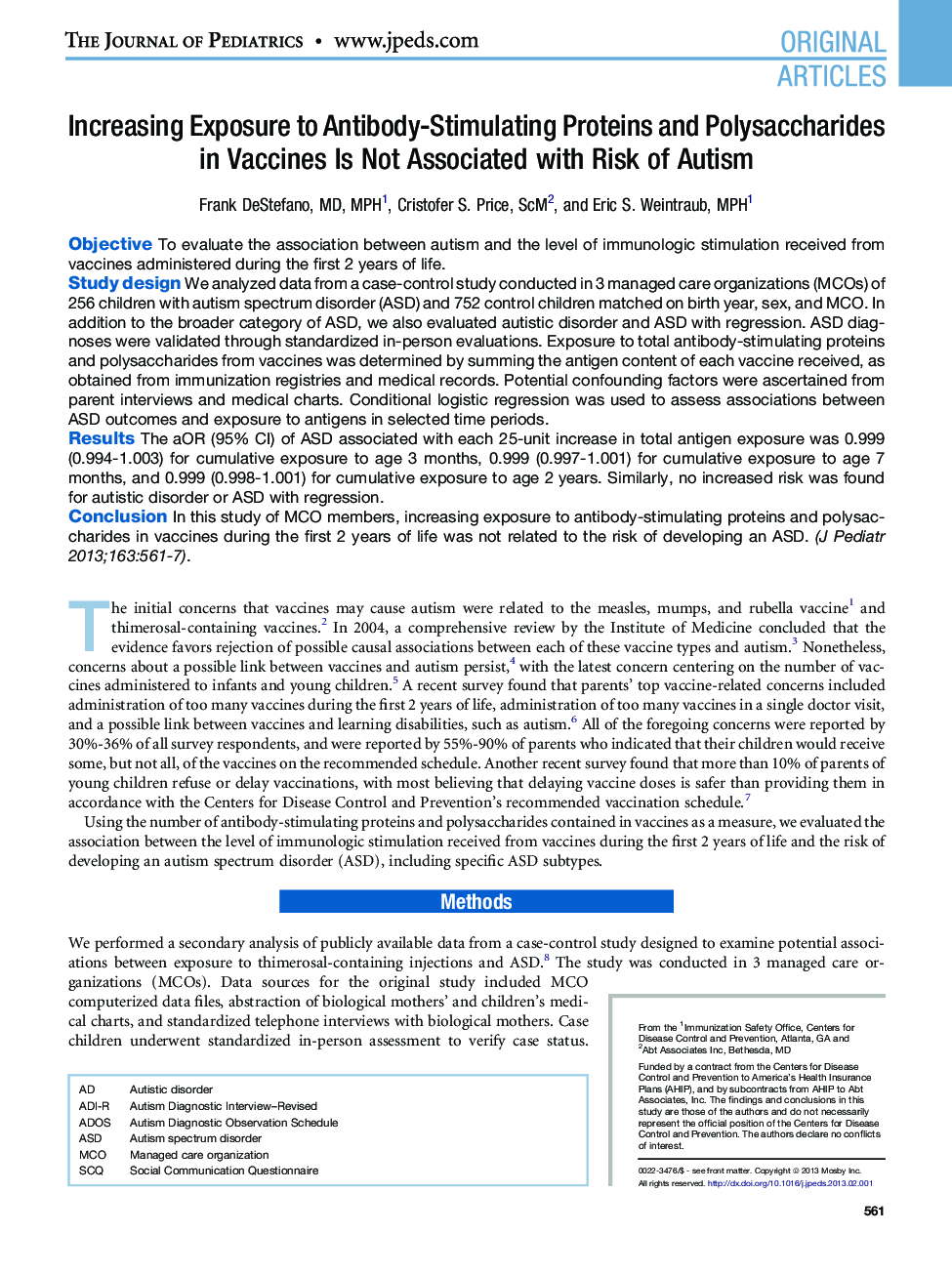| Article ID | Journal | Published Year | Pages | File Type |
|---|---|---|---|---|
| 6223568 | The Journal of Pediatrics | 2013 | 7 Pages |
ObjectiveTo evaluate the association between autism and the level of immunologic stimulation received from vaccines administered during the first 2 years of life.Study designWe analyzed data from a case-control study conducted in 3 managed care organizations (MCOs) of 256 children with autism spectrum disorder (ASD) and 752 control children matched on birth year, sex, and MCO. In addition to the broader category of ASD, we also evaluated autistic disorder and ASD with regression. ASD diagnoses were validated through standardized in-person evaluations. Exposure to total antibody-stimulating proteins and polysaccharides from vaccines was determined by summing the antigen content of each vaccine received, as obtained from immunization registries and medical records. Potential confounding factors were ascertained from parent interviews and medical charts. Conditional logistic regression was used to assess associations between ASD outcomes and exposure to antigens in selected time periods.ResultsThe aOR (95% CI) of ASD associated with each 25-unit increase in total antigen exposure was 0.999 (0.994-1.003) for cumulative exposure to age 3 months, 0.999 (0.997-1.001) for cumulative exposure to age 7 months, and 0.999 (0.998-1.001) for cumulative exposure to age 2 years. Similarly, no increased risk was found for autistic disorder or ASD with regression.ConclusionIn this study of MCO members, increasing exposure to antibody-stimulating proteins and polysaccharides in vaccines during the first 2 years of life was not related to the risk of developing an ASD.
